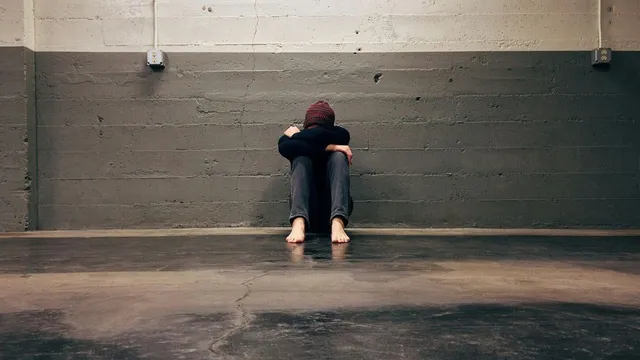I was catching up with an old buddy of mine when he suddenly announced that he now felt ready to start a family and was going to factor this into his dating life going forward. He wasn’t asking me to have any part of this, you understand; he was simply sharing his upcoming plans. Still, this was quite a lot of information to take in over dim sum, but what really caught me off guard was the fact my friend had recently celebrated his 50th birthday.
There is no denying that said friend is in good shape, with a decent job, and a lot to offer any woman who might be willing to breed with him. He fully acknowledged that it was going to be difficult to keep up with the demands of a newborn as a 50-year-old, and that raising a teenager in your mid-sixties would be challenging, but he was sure that he was up to the task. We spoke lot about the physical, mental, and financial demands of a baby, but it quickly became apparent that the issue of his fertility had not crossed his mind, not even once.

Like so many men, my friend was labouring under the misapprehension that his fertility was evergreen and that he would be able to sire offspring throughout his entire life. The only consideration around age and fertility he had made was that whoever ended up carrying his baby would have to be a lot younger than himself. Oh dear.
if(window.adverts) { window.adverts.
addToArray({"pos": "inread-hb-ros-inews"}); }We don’t often talk about male fertility and age, do we? Perhaps that is because there is a pervasive belief that men stay fertile for ever and can be popping out healthy spermatozoa in their twilight years if they want to. I mean, Al Pacino became a father for the fourth time at 83, for goodness’s sake!It is clearly possible for men to reproduce well into old age. The metaphorical “biological clock” is only ever invoked for women, who are conversely taught that their fertility will “fall off a cliff” at 35.
If I had a pound for every time I have heard it said that older men are attracted to younger women because these are their fertile years, I would have enough money to just flat out buy a baby – several babies, in fact.In actuality, the idea of the female “fertility cliff” has been repeatedly debunked by doctors, with research showing it’s more of a gradual decline than a plummeting decent into the barren darkness. Menopause will arrive eventually and with that goes any chance of conceiving naturally, but it isn’t true that 35 signals the death knell for fertility for women.
if(window.adverts) { window.adverts.
addToArray({"pos": "mpu_mobile_l1"}); }if(window.adverts) { window.adverts.
addToArray({"pos": "mpu_tablet_l1"}); }It is also untrue that men’s fertility stays in tip-top condition and does not significantly decline as they age, because it most certainly does. If you’re a man reading this who has been quietly confident in the tenacity of your little swimmers, even as you struggle to get out of a beanbag in middle age, buckle up. This will make for uncomfortable reading.
Not only does the quality of semen (count, motility – that’s how well sperm can propel themselves around – concentration, and morphology) start to steadily decline around the age of 30, making it increasingly harder to conceive, but sexual function also starts to wane.We are all aware that rates of dysfunction increase dramatically in men over 40, as levels of testosterone decrease. Even if a little blue pill can help with that, the age of the father has now been found to potentially impact not only the pregnancy, but the health of the offspring and the mother.
#color-context-related-article-3578010 {--inews-color-primary: #3759B7;--inews-color-secondary: #EFF2FA;--inews-color-tertiary: #3759B7;} Read Next square KATE LISTER I wore Kim Kardashian’s £68 nipple bra for a week – it's inexcusably stupidRead MoreResearch is emerging all the time, but several studies suggest rates of miscarriage rise significantly with advanced paternal age, as does the likelihood of a stillbirth, preeclampsia, postpartum haemorrhage, and the mother developing gestational diabetes.When it comes to childhood health issues, the list is long and frankly terrifying. In some studies, advanced paternal age (meaning over 35) has now been linked with significantly higher rates of cleft palates, hernias, urogenital abnormalities, childhood cancers, Downs syndrome, schizophrenia, autism, and even sudden death in childhood.
I don’t say this to scare anyone, although women have been thoroughly terrified with these kind of statistics around their own age for decades, but only to point out that male fertility is not constant or unaffected by the ageing process. Even if an older man does get someone up the duff, there could still be a risk to the resulting pregnancy and the health of the baby. But when it comes to fertility and age, it is almost always women who are in the spotlight and feeling the pressure to reproduce before it’s too late.
In Bridget Jones’s Baby, for example, the character of Mark Darcy is a full five years older than the eponymous heroine, yet she is the one who is lectured about the dangers of being a “geriatric mother” at the age of 43.if(window.adverts) { window.
adverts.addToArray({"pos": "mpu_mobile_l2"}); }if(window.adverts) { window.
adverts.addToArray({"pos": "mpu_tablet_l2"}); }“Geriatric father” has never been a clinical term, by the way. Mercifully, “geriatric mother” (meaning over 40) has now been replaced by “advanced maternal age,” and “advanced paternal age” is now a recognised clinical term.
My poor friend seemed blissfully unaware of all of this and genuinely alarmed when I gently suggested he should have his fertility tested before launching himself on the dating apps in an effort to find a heathy ovum. The very idea that he may have left it too late seemed to shake him to his very core. How could he possibly have “left it too late”? He is a man! He doesn’t have a biological clock; he has patriarchy and the eternal flame of male fertility, or so he thought.
I wondered how many other men are wandering about believing their semen to be immortal. I conducted a rapid and highly unscientific survey of my male friends to ask them if they thought their fertility would expire, and every single one of them believed they could keep going as long as they had Viagra and enough strength to thrust. It hadn’t occurred to any of them that their fertility may be finite, whereas every single one of my girlfriends has worried about this at one time or another.
Perhaps it is not too surprising that the myth around male fertility persists – it is only within the past two decades or so that research on fertility and the age of the father has started to garner serious attention. It is also true that women’s fertility ends in a more obvious way than a man’s does.But perhaps another reason that conversations about older men and fertility are lacking is because it disrupts a very comforting, if deeply patriarchal, narrative, namely that it’s “natural” for an older man to lust after a woman half his age.
That “men age like fine wine” and “women age like milk”. So, it’s not about being a creep, it’s basic biology! Unfortunately, the actual biology is now telling us a very different story. Our cultural obsession with women and youth isn’t about fertility – it’s patriarchy.
.















